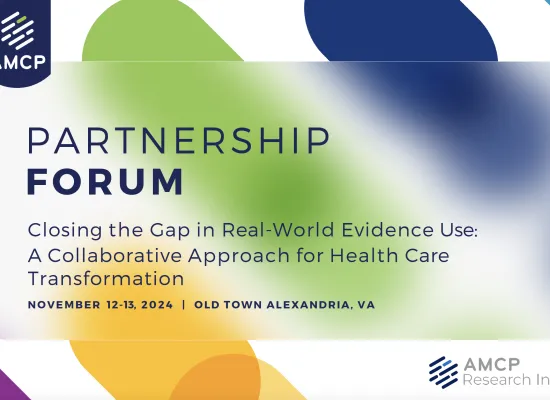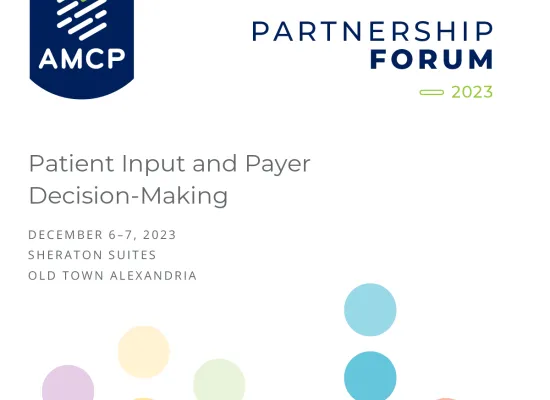
AMCP Market Insights Roundtable on Bridging the Gaps in Precision Oncology: Opportunities in Non-Small Cell Lung Cancer
Findings from an AMCP Market Insights Program
Lung cancer is the most common cancer worldwide, with non-small cell lung cancer (NSCLC) accounting for approximately 85% of all lung cancers. The National Institutes of Health estimated that cancer care cost the US $208.9 billion in 2020, $23.8 billion of which was due to lung cancer.1 The treatment of NSCLC lung cancer has advanced significantly based on the use of genomic testing to target the best therapeutic treatment. For health plans and payer stakeholders, precision oncology provides a long-anticipated strategy to control costs, utilization, and product waste in cancer care. However, realizing these benefits is subject to overcoming barriers impacting the timeliness of care for patients with NSCLC.
To understand the appropriate and cost-effective use of biomarker-driven treatment selection in NSCLC, AMCP convened an expert panel of managed care stakeholders. Panelists included representatives from national and regional health plans, integrated delivery systems, laboratories, pharmacy benefit managers, patient and advocacy organizations, and genomics organizations. Participants discussed the evolving landscape of biomarkers, clinical practice gaps, and the cost-effectiveness of biomarker-driven precision oncology.
- Findings from Market Insights Roundtable
- Bridging the Gaps in Precision Oncology: Opportunities in Non-Small Cell Lung Cancer Webinar
- Health Plan Best Practice Infographic: Biomarker Testing in Non-Small Cell Lung Cancer (NSCLC)
1. U.S. National Institutes of Health. Cancer Trends Progress Report – Financial Burden of Cancer Care. National Cancer Institute. Accessed April 2023. https://progressreport.cancer.gov/after/economic_burden
About AMCP Market Insights Program
Featured News & Resources
See Full CalendarAI Pre-Conference Program
AMCP Southwest Day of Education
Upcoming Events
AMCP offers a wide variety of educational opportunities, from events and webinars to online training.







